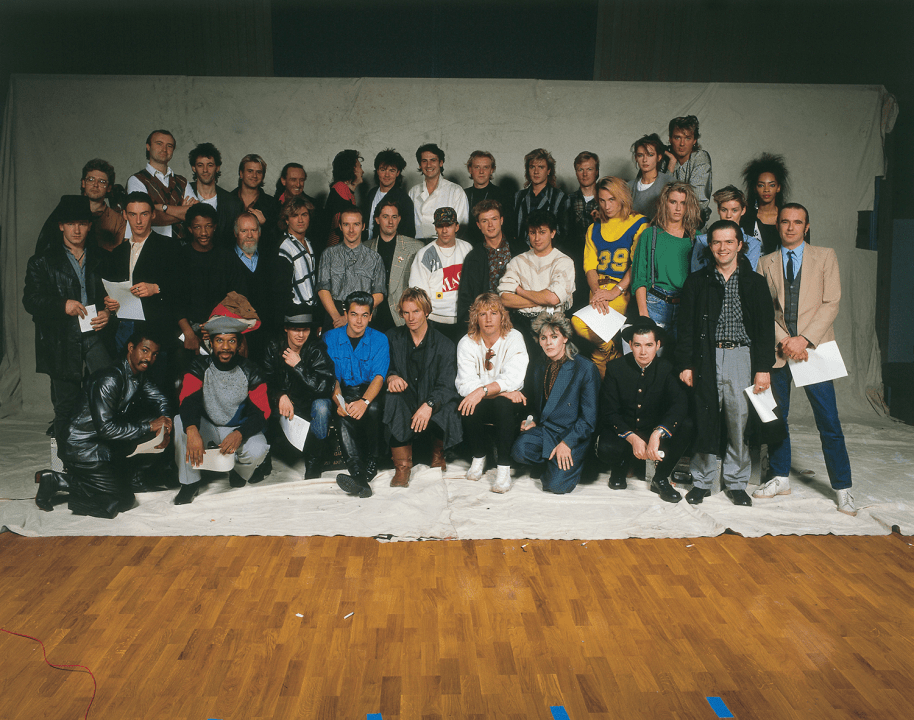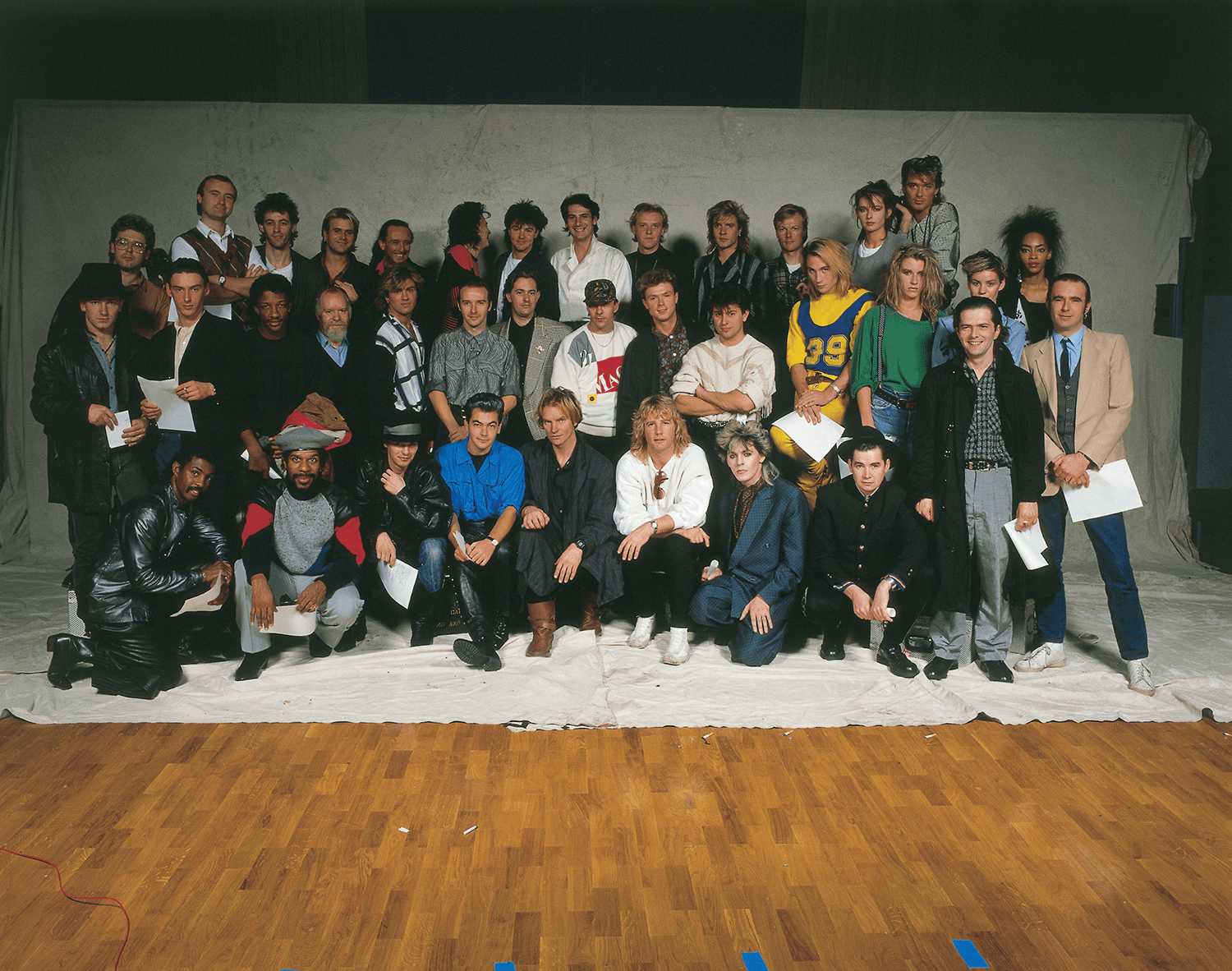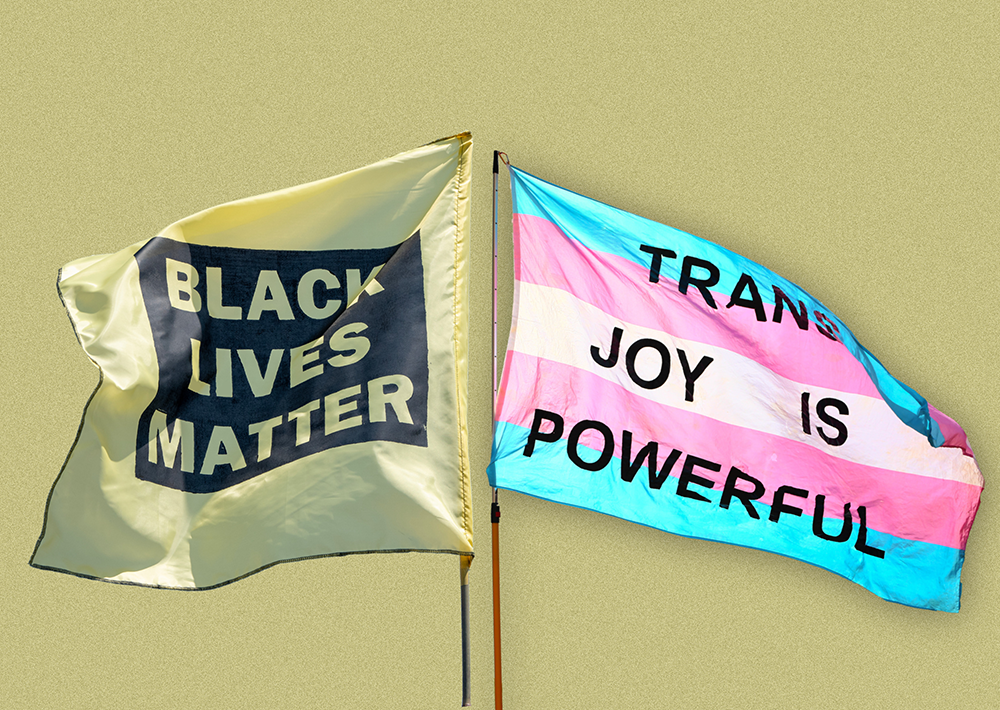‘I hope we passed the audition,’ said an alarmingly youthful Bob Geldof at one point in The Making of Do They Know It’s Christmas? He was, of course, quoting John Lennon from the 1969 Beatles rooftop concert: an appropriate reference in the circumstances – because this documentary was a kind of Get Back for the Smash Hits generation. Like a far shorter version of Peter Jackson’s film of the Beatles at work, it mixed footage we’d seen before with stuff locked away in the vaults for decades. It was also equally unafraid of longueurs, equally determined to accentuate the positive and equally likely to warm the flintiest of hearts.
I imagined I’d do my share of mocking – but watching it, all that felt mean-spirited
The setting was a still-shabby Notting Hill on Sunday 25 November 1984, where Geldof and Midge Ure began the day wondering if any of the pop stars they’d invited to make a charity record for Ethiopia would show up. Gradually, a series of bouffant and blond-highlighted hairdos were seen making their way to the recording studio. On arrival, they got down to the serious business of comparing hangovers, with the winner probably Spandau Ballet’s leather-trousered Tony Hadley who’d had two hours’ sleep and was making a pained attempt to remember all the words he’d have to sing – namely ‘the bitter sting of tears’.
From the annoyingly intrusive perspective of 2024, you couldn’t help noticing how white and male almost all of these people were. Even so, there was some variety – or, if you prefer, wild and endearing randomness – as Status Quo bumped into Sting, Paul Weller strode around with an unexpectedly patrician walking cane and Phil Collins observed his garish confrères while wearing a tank top and slacks.
More generally, we were also reminded that (not very far) beneath the patina of 1980s glamour, the popstars of the day were largely a bunch of scruffy kids who couldn’t quite believe their luck, however entitled they touchingly tried to look. Once gathered, they seemed like people aware that they were in on the same joke.
And, despite much talk about rampant egos and savage rivalries, neither were on obvious display. George Michael accepted with only slightly faked good grace that the song would scupper the chances of ‘Last Christmas’ being the festive number one. Members of Spandau Ballet and Duran Duran got on just fine – which Simon Le Bon genially compared to the Christmas truce in the trenches. Even Boy George, who’d made a delayed and resolutely starry entrance fresh from Concorde, was soon mucking in and wishing he’d arrived earlier.
In the years since, it’s become increasingly fashionable (as well as easy) to mock ‘Do They Know It’s Christmas?’ with its simultaneously heartfelt and naff lyrics about such things as the tragic absence of African yuletide snow. More recently, it’s been accused of suffering from a white-saviour delusion – and therefore of racism.
To be honest, I imagined that I’d do my share of mocking and accusing in this review. Yet, watching the documentary, all that felt not just mean-spirited but also wrong-headed. Granted, the song isn’t a towering pop masterpiece – but it’s hard to think of anything doing the job better. Granted too, the performers were, as mentioned, overwhelmingly white – but the belief that they’d save a lot of people was far from delusional.
After the stars had gone, a visibly knackered Geldof reflected happily on the day. ‘The moment when everybody sang, I thought, “Oh God, this is great”,’ he concluded – and I still think you’d have to be almost terminally cynical to disagree.
Meanwhile, Death in Paradise’s bid for world domination continues. After its first spin-off, Beyond Paradise, set in Devon, comes its second: Return to Paradise, set in Australia. There is, however, one twist. In a brave departure – shared only by pretty much every other cop show on television – the main police officer is a woman.
Mackenzie Clarke, a detective in the Met, has returned to the small and duly idyllic Australian town where she grew up and where, we now know, she jilted an unusually hunky pathologist at the altar when she headed for the wider horizons of London. Like her male Paradise predecessors, she soon proves brilliant at solving apparently impossible murders that only three or four people could have done. Unlike them, though, she’s markedly short of charm.
And that, I fear, is the problem with the programme. As Clarke says, ‘I’m in a bad mood all the time’ – and to confirm it, she radiates a constant disdain which she communicates by alternating between theatrically wide-eyed stares of disbelief and theatrically exasperated frowns.
At some point, no doubt, Clarke will be revealed to have a softer side. But, while we wait for that, the effect of her abiding gloom after two episodes is to suck the usual joy out of what really is known in TV circles as ‘the Paraverse’.








Comments